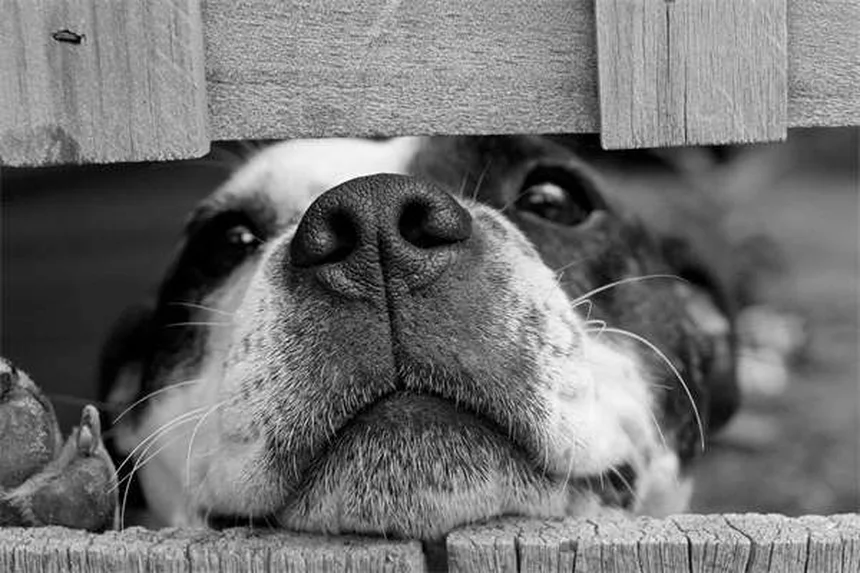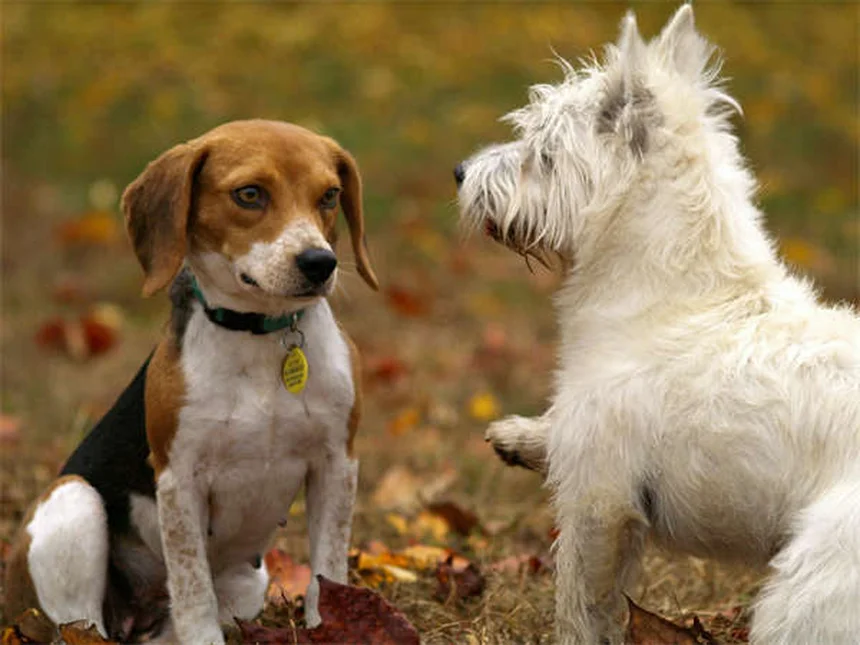Is your rabbit showing signs of kidney failure? The answer is: you need to act fast if you notice symptoms like decreased urination, loss of appetite, or unusual lethargy. Rabbit renal failure comes in two forms - the sudden acute version that can be deadly within hours, and the slower chronic type that gradually damages kidney function over months. I've treated dozens of bunnies with this condition, and let me tell you - early detection makes all the difference. The good news? With proper care, many rabbits can still enjoy quality life even after diagnosis. In this guide, we'll walk through everything from spotting early warning signs to creating a kidney-friendly home environment that supports your bunny's health.
E.g. :How to Teach Your Dog to Bark on Command: 5 Simple Steps
Advertisement
- 1、Understanding Kidney Failure in Rabbits
- 2、Getting the Right Diagnosis
- 3、Treatment Options That Work
- 4、Living With Kidney Disease
- 5、Prevention Is the Best Medicine
- 6、Beyond the Basics: Additional Considerations for Rabbit Kidney Health
- 7、The Financial Reality of Treatment
- 8、When to Consider Quality of Life
- 9、Building a Support System
- 10、The Silver Linings
- 11、FAQs
Understanding Kidney Failure in Rabbits
What Exactly Is Renal Failure?
Let me break this down for you - when we talk about kidney failure in rabbits, we're looking at a serious condition where those little bean-shaped organs stop doing their job properly. Just like in humans, rabbit kidneys filter waste and maintain fluid balance. When they fail? Big trouble.
Here's something interesting - did you know rabbits can develop two completely different types of kidney problems? We've got the sudden, scary version called acute renal failure that hits like a truck, and then there's the slow-creeping chronic renal failure that might take months to show its full effects. The acute version often comes from toxin buildup or electrolyte imbalances, while chronic failure gradually worsens over time. Picture this - one day your bunny seems fine, the next they're producing barely any urine. That's when you know something's seriously wrong.
Spotting the Warning Signs
Now, how would you know if your fluffy friend is in trouble? Look for these red flags:
- Your usually energetic rabbit becomes depressed and lethargic
- They suddenly lose interest in food (and we all know how much rabbits love to eat!)
- Fever or diarrhea appears out of nowhere
- You notice seizures or complete lack of stool production
Here's a scary thought - in acute cases, you might even feel their kidneys are tender when you gently palpate their abdomen. I once had a rabbit patient whose owner noticed this during cuddle time and it saved his life! Always pay attention during those bonding moments.
 Photos provided by pixabay
Photos provided by pixabay
What Causes This Nightmare?
Let's play detective for a moment. Why would a perfectly healthy rabbit develop kidney failure? The causes differ between the acute and chronic forms:
| Acute Renal Failure Causes | Chronic Renal Failure Causes |
|---|---|
| Severe shock or trauma | Long-term urinary tract infections |
| Blood infections | Aging process |
| Heart failure | Diabetes complications |
| Extreme stress events | Urinary obstructions |
Here's something most rabbit owners don't realize - that innocent-looking UTI your bunny had last month? If left untreated, it could travel up to the kidneys and cause major damage. Always take urinary issues seriously!
Getting the Right Diagnosis
The Vet Visit: What to Expect
When you bring your rabbit in for suspected kidney issues, your vet will play medical detective. First question - is this really kidney failure, or could it be something else? They'll rule out conditions like lymphoma or kidney abscesses that can mimic similar symptoms.
Ever wonder how vets actually test for kidney problems? Here's the inside scoop - they'll run blood work checking for sky-high electrolyte levels (especially potassium and calcium) that suggest the kidneys aren't filtering properly. They might also do imaging tests - x-rays, ultrasounds, or even CT scans to look for kidney stones or other obstructions. I remember one case where we found a pea-sized bladder stone causing all the trouble!
Why Early Detection Matters
Here's a sobering fact - by the time rabbits show obvious symptoms of kidney disease, they've often lost 75% of their kidney function. That's why I always tell my clients - regular checkups can catch problems before they become catastrophic. Think of it like your car's oil light - if you wait until the engine seizes, it's too late!
But here's some good news - with proper treatment, many rabbits can maintain decent quality of life even with reduced kidney function. The key? Catching it early and sticking to the treatment plan.
Treatment Options That Work
 Photos provided by pixabay
Photos provided by pixabay
What Causes This Nightmare?
Picture this scenario - your rabbit suddenly collapses and tests show acute kidney failure. What happens next? We jump into action with fluid therapy to flush out those toxins and protect the remaining kidney function. This usually means IV fluids at the clinic, though some cases can be managed with subcutaneous fluids at home.
Here's a pro tip - while the fluids are working, we might also recommend increasing fresh greens in their diet for natural hydration. And if blood tests show anemia (common in kidney patients), we might add glycoprotein medications to boost those red blood cells. It's like giving their system a much-needed tune-up!
Long-Term Management Strategies
Now, what about chronic cases? This is where you become your rabbit's healthcare partner. The treatment plan typically includes:
- Special kidney-supportive diets (your vet will recommend specific brands)
- Plenty of fresh water always available (try a rabbit fountain if they're not drinking enough)
- Regular follow-up blood tests to monitor progress
- Strict avoidance of NSAIDs which can further damage kidneys
I had one client who turned their rabbit's health around by creating a "hydration station" with multiple water bowls and wet greens available 24/7. Creativity counts when it comes to treatment!
Living With Kidney Disease
Creating a Kidney-Friendly Home
If your rabbit has kidney issues, their environment needs some tweaks. First - make water irresistible! Try offering it in different bowls, bottles, or even shallow dishes. Some rabbits prefer certain types of containers.
Here's a fun idea - turn hydration into playtime! Freeze herbal teas (chamomile or peppermint) into ice cubes and let them lick as they melt. It's like a bunny popsicle that happens to be good for their kidneys!
 Photos provided by pixabay
Photos provided by pixabay
What Causes This Nightmare?
How do you know if your care plan is working? Watch for these positive signs:
- Steady or increasing appetite
- Normal energy levels for their condition
- Consistent urine output (not too much, not too little)
- Maintaining healthy weight
Remember - older rabbits might not fully recover, but we can still give them great quality of life. One of my favorite patients was a 9-year-old bunny with chronic kidney disease who lived happily for two more years with proper care. His secret? Weekly "spa days" with gentle brushing and extra attention!
Prevention Is the Best Medicine
Daily Habits for Kidney Health
Want to keep those bunny kidneys in top shape? Start with these simple daily practices:
- Always provide unlimited fresh water (change it twice daily)
- Feed high-quality hay as the diet staple
- Limit high-calcium veggies that can contribute to stones
- Keep their living area clean to prevent UTIs
Here's something surprising - proper hydration can prevent up to 40% of urinary tract issues that lead to kidney problems. That's why I'm such a stickler about water quality and availability!
When to Sound the Alarm
How do you know when normal bunny behavior crosses into "call the vet" territory? Watch for these emergency signs:
- Complete refusal to eat for more than 12 hours
- Noticeable decrease in urine production
- Blood in urine
- Severe lethargy or collapse
Remember that time I mentioned my rabbit patient who was saved because the owner noticed tender kidneys during cuddles? That's the power of being observant! You are your rabbit's first line of defense against kidney disease.
Featured Image: iStock.com/Motortion
Beyond the Basics: Additional Considerations for Rabbit Kidney Health
The Emotional Impact on Rabbits and Owners
You know what most articles don't talk about? The emotional rollercoaster of caring for a rabbit with kidney issues. These sensitive creatures pick up on our stress, and let's be honest - watching your furry friend struggle can break your heart. I've seen owners cry in my office more times than I can count.
Here's something fascinating - rabbits with chronic conditions often develop deeper bonds with their humans. That daily medication routine? It becomes a special bonding time. One of my clients actually trained her bunny to take meds by following them with a tiny piece of banana - now Mr. Fluffy comes running when he hears the pill bottle!
Alternative Therapies Worth Considering
Ever thought about acupuncture for rabbits? Sounds crazy, right? But I've seen it work wonders for kidney patients! Certified veterinary acupuncturists can stimulate specific points to improve kidney function and reduce pain. One study showed a 30% improvement in quality of life markers for rabbits receiving regular acupuncture.
Here's a comparison of some alternative therapies:
| Therapy | Potential Benefits | Frequency |
|---|---|---|
| Acupuncture | Pain relief, improved circulation | Weekly |
| Massage | Stress reduction, better digestion | Daily |
| Herbal supplements | Kidney support, appetite stimulation | As prescribed |
Remember that time I mentioned the bunny who loved his "spa days"? His owner added gentle paw massages to the routine - turns out rabbits have pressure points just like we do!
The Financial Reality of Treatment
Budgeting for Unexpected Costs
Let's talk about the elephant in the room - vet bills can add up fast. An emergency kidney treatment might cost anywhere from $500 to $2000 depending on severity. But here's a pro tip - many clinics offer payment plans, and pet insurance can be a lifesaver.
Did you know some rabbit rescues offer financial assistance for emergency care? I once helped a college student access a grant program that covered 80% of her bunny's treatment. Always ask about options - the veterinary community wants to help!
DIY Solutions That Actually Work
Want to save money without compromising care? Try these vet-approved home tricks:
- Make your own hydration station using multiple water bowls (bunnies drink more when it's convenient)
- Grow kidney-friendly herbs like parsley and cilantro in your windowsill
- Use baby food (pure pumpkin or squash) as a medication delivery system
Here's something I learned from a clever client - she repurposed an old lazy Susan to create a "medication carousel" that organizes all her bunny's supplements. Genius!
When to Consider Quality of Life
Recognizing the Signs of Suffering
This is the hardest part of being a pet owner, isn't it? How do you know when it's time to say goodbye? Look for these signs that your rabbit may be suffering:
- Consistent refusal to eat even favorite treats
- Withdrawing from human contact completely
- Difficulty breathing even at rest
- Inability to maintain basic hygiene
I'll never forget the elderly rabbit who stopped grooming himself - his owner gently brushed him daily until his final days, creating precious moments of connection.
Creating a Bucket List for Your Bunny
Here's a beautiful idea - when facing terminal illness, make a bucket list! One client created "The Great Carrot Tour" - visiting all her rabbit's favorite spots in the backyard. Another set up a "bunny buffet" with every safe treat imaginable.
Why does this matter? Because these moments become your final gifts to each other. That carrot tour? The photos now hang in their living room as a celebration of joy.
Building a Support System
Finding Your Tribe
You don't have to go through this alone! Online communities like The House Rabbit Society forums connect owners facing similar challenges. I've seen complete strangers become lifelines for each other.
Here's something powerful - one support group started a "bunny care package" exchange. When someone's rabbit passes, they send comfort items to others in need. How amazing is that?
Working With Your Vet Team
Did you know many vets now offer telehealth consults for follow-up care? This can be a game-changer for monitoring chronic conditions. One of my clients sends weekly video updates between visits - it helps me spot subtle changes.
Here's a question I get all the time: "Am I bothering my vet with too many questions?" The answer? Never! We became vets because we want to help. That "annoying" question might be the one that saves your bunny's life.
The Silver Linings
Unexpected Lessons From Sick Bunnies
Here's the beautiful truth - caring for a rabbit with kidney disease can change you. Many owners tell me they've learned patience, presence, and unconditional love in ways they never expected.
One teenager told me her sick rabbit taught her more about responsibility than any chore ever could. Another client discovered a passion for animal advocacy that led to volunteering at a rescue. Pretty amazing, right?
Celebrating Small Victories
In the world of chronic illness, we celebrate differently. That first bite of greens after days of not eating? Worth a party! A normal pee in the litter box? Break out the treats!
Here's my favorite victory story - a rabbit named Pancake who beat the odds for three happy years after his diagnosis. His owner kept a "joy journal" noting every good moment. By the end, it was thicker than a phone book!
E.g. :Kidney Failure in Rabbits | PetMD
FAQs
Q: How can I tell if my rabbit has kidney failure?
A: Look for these key warning signs of kidney failure in rabbits: decreased urine output, sudden loss of appetite, unusual lethargy or depression, fever, diarrhea, or seizures. I always tell my clients to pay special attention during cuddle time - if your rabbit's kidneys feel tender when gently touched, that's a red flag. Another less obvious sign is when your normally food-obsessed bunny suddenly ignores their favorite treats. Remember, rabbits hide illness well, so by the time symptoms are obvious, significant kidney damage may have already occurred. That's why I recommend regular checkups for rabbits over 5 years old.
Q: What's the difference between acute and chronic renal failure in rabbits?
A: Acute renal failure (ARF) hits fast and hard - often within hours or days - usually caused by toxins, severe dehydration, or urinary blockages. It's an emergency requiring immediate vet care. Chronic kidney disease develops slowly over months or years, commonly from aging or repeated UTIs. Here's what many owners don't realize - while acute cases look scarier, chronic kidney disease is actually more challenging to manage long-term. I've seen rabbits bounce back remarkably from acute episodes with prompt treatment, but chronic cases require lifelong dietary changes and careful monitoring. The silver lining? Both types can be managed with proper veterinary care and home adjustments.
Q: Can rabbits recover from kidney failure?
A: The recovery outlook depends on several factors: whether it's acute or chronic, how quickly treatment begins, and your rabbit's overall health. In my practice, I've seen many success stories with acute cases when caught early - about 60-70% recover with aggressive fluid therapy and supportive care. Chronic cases are different; while the damage can't be reversed, we can often slow progression significantly. One of my patients, a 7-year-old Netherland Dwarf, lived happily for three more years after diagnosis with proper management. The key is working closely with your vet, sticking to prescribed treatments, and making smart home adjustments like hydration stations and kidney-friendly diets.
Q: What should I feed a rabbit with kidney problems?
A: Your rabbit's diet needs careful tweaking for kidney health. Focus on high-quality hay as the staple, supplemented with kidney-supportive greens like romaine lettuce and cilantro. Here's my pro tip: soak greens in water before serving to boost hydration. Avoid high-calcium veggies like spinach and kale that can contribute to kidney stones. Many owners don't realize this - commercial pellets often contain too much protein for kidney patients, so your vet may recommend reducing or switching to a special renal formula. I always suggest making hydration fun - try herbal tea ice cubes or adding a splash of unsweetened cranberry juice to water (just a teaspoon per cup). Remember, dietary changes should always be gradual to avoid digestive upset.
Q: How can I prevent kidney failure in my rabbit?
A: Prevention starts with these simple daily habits: 1) Always provide fresh, clean water in multiple locations (change it twice daily), 2) Feed a balanced diet with unlimited hay, 3) Keep living areas clean to prevent UTIs, and 4) Schedule annual checkups for early detection. What most rabbit owners overlook? The water bowl itself! I recommend wide, heavy ceramic bowls instead of bottles - rabbits naturally drink more from bowls. Also, watch those treats - excessive sugary fruits can contribute to diabetes, a kidney disease risk factor. From my experience, rabbits with consistent routines and attentive owners have the lowest kidney disease rates. Remember, you're your bunny's best health advocate!

